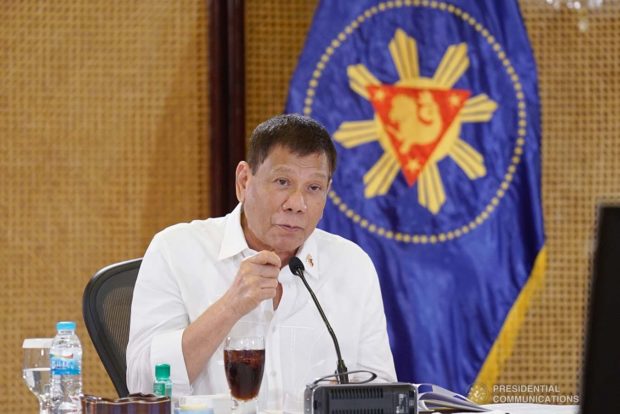MANILA, Philippines — With about six months left in his term, President Rodrigo Duterte has created via executive order an agency to replace the Office of the Presidential Adviser on the Peace Process (Opapp) supposedly in a bid to rationalize and strengthen the way the government implements, negotiates and creates policies for peace agreements with rebel groups.
Through Executive Order (EO) No. 158, signed on Dec. 27, Duterte created the Office of the Presidential Adviser on Peace, Reconciliation and Unity (Papru), replacing the Opapp, currently headed by the vaccine czar and National Task Force Against COVID-19 chief implementer, Secretary Carlito Galvez Jr.
The Palace did not explain why the administration saw the need to replace the Opapp when the administration only has less than six months in office and EO 158 could be repealed by another EO from the president to be elected in May.
The new EO replaces the “systemic approach” for the peace process set through EOs that former Presidents Fidel Ramos and Gloria Macapagal Arroyo issued in 1993 and 2001, respectively.
“Peace-building interventions, programs and activities shall consolidate peaceful relations and strengthen viable political, socioeconomic and cultural institutions to be capable of handling conflict, and enhance the capacity of other mechanisms to create or support the necessary conditions for sustained peace,” he said in his EO.
The “six paths to peace” under the Arroyo and Ramos administrations were also reduced by Duterte to three objectives, namely embedding peace, reconciliation and unity in the social fabric; enhancing resiliency for peace; and social, economic, and political reengineering.
Duterte’s EO also fixes the administrative structure for comprehensive peace processes.
While the Opapp merely advised and assisted the President in the management, direction, and supervision of the comprehensive peace process, the Papru will now manage, direct, integrate, and supervise, on behalf of the president, all aspects of the peace process.
